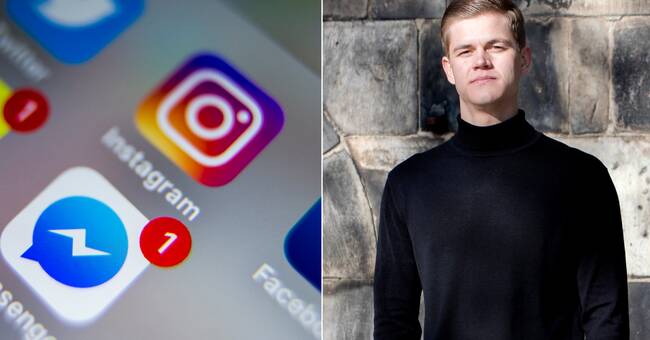The book depicts the last 100 years and is based on the aftermath of the First World War.
- There was a similar discussion about the mass media in the 1920s as there is now about social media.
There was talk that they had made it possible for extremism and conspiracy theories to spread faster than ever, says Jonathan Lundberg.
In connection with the presidential election in the USA in 2020, Twitter in particular was marked by a major debate.
Donald Trump claimed that the election result was not correct and called on his voters to demonstrate peacefully.
It ended with Twitter blocking the then president from the platform after he was accused of inciting the storming of the Capitol on January 6, 2021.
- The reasoning has been that if we silence Donald Trump and his supporters from social channels, we can save the crisis of democracy.
But the danger here is that this silence will in itself become undemocratic.
How many can you silence before you yourself become a threat to democracy?
Extremism and conspiracy theories a threat
Moderation and shutdown from the major platforms has led to less moderated forums gaining more members.
Flashback and 4chan are some of the websites where you can publish content anonymously and where extremism and conspiracy theories have taken root.
The QAnon conspiracy movement founded on 4chan went from word to deed as they took the lead in the storming of the Capitol.
- There is really a threat to democracy here as well.
When social media shuts down these people, they see it as a way to protect democracy.
But I think a more effective way is to make sure that so many people are receptive to these messages.
How do you do it?
- By looking more closely at the reasons why people turn against society.
And not to help dehumanize people we find unpleasant.
Listening to these people, not silencing them, says Jonathan Lundberg.

